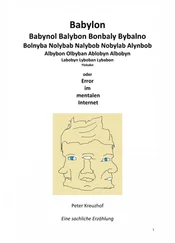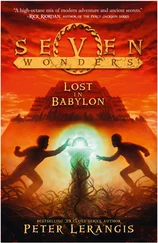There’s a knock at the door. It’s the waiter. He’s pushing a trolley. A bottle of Moët et Chandon lies on ice in a frosty silver bucket. “Compliments of the restaurant manager,” says the waiter, lingering. Rácz figures he must be waiting for a tip. “Rácz hasn’t unpacked yet,” he tells the waiter. “He hasn’t got anything yet. Next time. Clear off!” The waiter backs out respectfully. His face registers disappointment.
* * *
There’s a snowstorm outside. Everything is covered in snow. It is pleasantly warm in the hotel, though. The gypsies are stoking the furnaces like crazy. The manager wanders down the corridors. He talks to himself. He is shivering with cold. He can’t get warm now even when he clings to the red-hot electric hob.
Things are bad at home, too. His wife’s lover has moved into his bed and wears his pyjamas. He combs his hair the way the manager does. He sits in the manager’s favourite armchair. The manager has to sleep in the kitchen, on chairs in a row. With tears in his eyes he has to listen to his wife’s moans and suppressed cries and his bed squeaking wildly. This often goes on late into the night. One day he comes home and finds the locks changed. He gets angry and bangs and kicks at the door. The door opens and his wife’s lover appears. He punches the manager in the mouth and throws him downstairs. In a flash the manager notices that the lover is growing his, the manager’s, moustache.
He moves into the hotel. The receptionist refuses to give him a room. “Those times are over,” he says stubbornly. “Maybe you can stay in a broom-cupboard where they keep the buckets,” he suggests. “There’s one on every floor. The cleaning lady has the key.” Let him wait for her. She could come any time. “And then again, she might not,” he adds maliciously. Even if he can have a broom-cupboard, then the manager would have to sleep standing. “Like in a lift,” the receptionist adds cheerfully, since he, too, had had his pay docked by the manager. He smiles. If the manager wanted to lie down, his legs would stick out of the cupboard. “That wouldn’t do. Despite everything, this is still an international hotel,” the receptionist stressed. “We can’t afford such eccentricities. What would the foreign guests say?”
Anyway, the receptionist says impatiently, pointing a fly swatter at the manager to stop him gripping the reception counter so hard, for this would leave greasy fingerprints, the receptionist doesn’t want to get into trouble. He’s not interested in politics. He doesn’t know what’s gone wrong between Rácz and the manager. The stoker is now the boss, though. The receptionist has survived several bosses. He wants to survive them all. He has a wife and kids, and so on. Rácz has eyes everywhere. The receptionist must ask the manager to stop compromising him, and to clear off. He’s still got his office, nobody’s taken that away from him.
With the last of his money the manager buys a pyramidal mountain-climber’s tent and pitches it in his office. It’s a question of survival. He spends most of his time in the tent now.
The news that Rácz has moved into the hotel shakes him. He crawls out of his tent and looks fixedly out of the window. Ďula is crossing the yard with a lunch-box in one hand and a loaf of bread in the other. He stops at the locked door of the boiler-room, searching for the keys. The manager is now used to the constant cold. On his hotplate a pot of thick vegetable soup is boiling. The manager makes it out of green tops and vegetable peelings thrown out by the cooks. The soup is full of warmth and vitamins. The manager has been afraid to go down to the restaurant or to ask for food directly from the kitchen, ever since the head chef told him to go and eat elsewhere, adding that the hotel kitchen was not a Salvation Army soup kitchen. They’ve somehow forgotten to pay him his salary. He’s penniless. He spent his last penny on the tent. Fortunately, the skips in the inner courtyard are a cornucopia. Last time he found a whole loaf of bread in there. It was quite good, just a bit dry. The manager believes that his situation is only temporary. At the very least, his wife and her lover might pardon him and he will be allowed to come back home.
He throws himself at the pot and hungrily slurps the thick liquid. The soup will warm him up a bit. The manager is carefully protecting himself from frostbite. Unfortunately, he can’t light a fire in his office. The walls that he had panelled in mahogany in happier times would go up in flames right away. When he’s finished his soup, the manager slinks along the wall, so as not to be seen, to wash his saucepan in the toilet. He walks carefully in his shapeless felt boots. His thick ski trousers make a swishing noise. The manager sings to himself to overcome his fear.
When he returns to his office, he drinks hot tea. He bursts out crying. His tears freeze instantly on his cheeks. He still feels like the manager of the hotel and so he goes out on an inspection. Like a big puffed-up snowman he trudges the corridors, singing sad songs. Nobody respects him any more. Nobody is interested in his advice, let alone his orders. Everyone is afraid to be seen in his company by Rácz, or by someone who might tell Rácz. Rácz has his people everywhere. Now he is the master here. When he left the boiler-room and moved into a suite, he made it quite clear what he was after.
The manager is merely tolerated now. The guests share this attitude. To the regulars, he is a pathetic wretch. To new guests he seems a weird, tragicomic figure to be met in a dark corridor any time by day or night.
* * *
Gunnar Hurensson sits in his Volvo and slowly drives from the border crossing, which is set deep in the fields, towards the ugly, snowbound and muddy city in the distance. The city reminds him of a monstrous tumour: each time he comes, it seems bigger and more monstrous than ever.
He’s not been here for a while. He’d been nursing a venereal disease that he caught from a Slovak whore. The hospital subjected him to such thorough and painful treatment, that ever since then he has been able to see with each eye a different side of the world.
He’s got a camera in his suitcase. He’s promised it to a young man whom he met last summer. The boy is sure to be expecting it. He is slender, with a sad yet charming face. Hurensson likes boys like that. He likes girls, of course, but he likes boys, too. He has decided. If the young man is nice, really nice to him, he’ll get the camera as a present. It will be a gift from an older friend from Sweden.
It is snowing heavily. As far as the bridge over the river Hurensson crawls along in a queue behind a snowplough. Two men on the back of the snowplough are generously shovelling coarse salt onto the road. In Sweden they’d be lynched for it, Hurensson thinks. But in this dim and depressed nation, nobody takes any notice. Dozens of Škoda cars have overtaken the plough without any trouble, so why should he get out and argue with them? He wouldn’t be able to make himself understood, anyway. He’s fluent in five languages and can get along anywhere, even Thailand. But that’s not the slightest use to him here. In the Hotel Ambassador café Hurensson waits for a coffee. This small nation with its artificially hypertrophied and incomprehensible national pride is a nation of geniuses misunderstood and unrecognized by the rest of the world, he feels. They all believe that they’re better than they seem at first sight. The young hustler and unlicensed taxi driver thinks he is an artist. The blonde whore never fails to stress that she was originally a ballet dancer. The stooped porter with spidery bony fingers who takes your bags turns out to have been at one time a lecturer at the evening university, now closed, of Marxism-Leninism. He was a philosopher, or so he says. Whatever they do now is only temporary, done out of necessity. The café waitress is miserable; no doubt, she originally planned to be an actress. She finds it degrading to serve Hurensson coffee. As if Hurensson were partly to blame for her failure to become an actress. This is a nation of the underestimated, it occurs to Hurensson. They could have given the world some of the most brilliant artists, ballet dancers, and scientists — at least that’s what they claim. Why didn’t they — that’s the question?
Читать дальше












